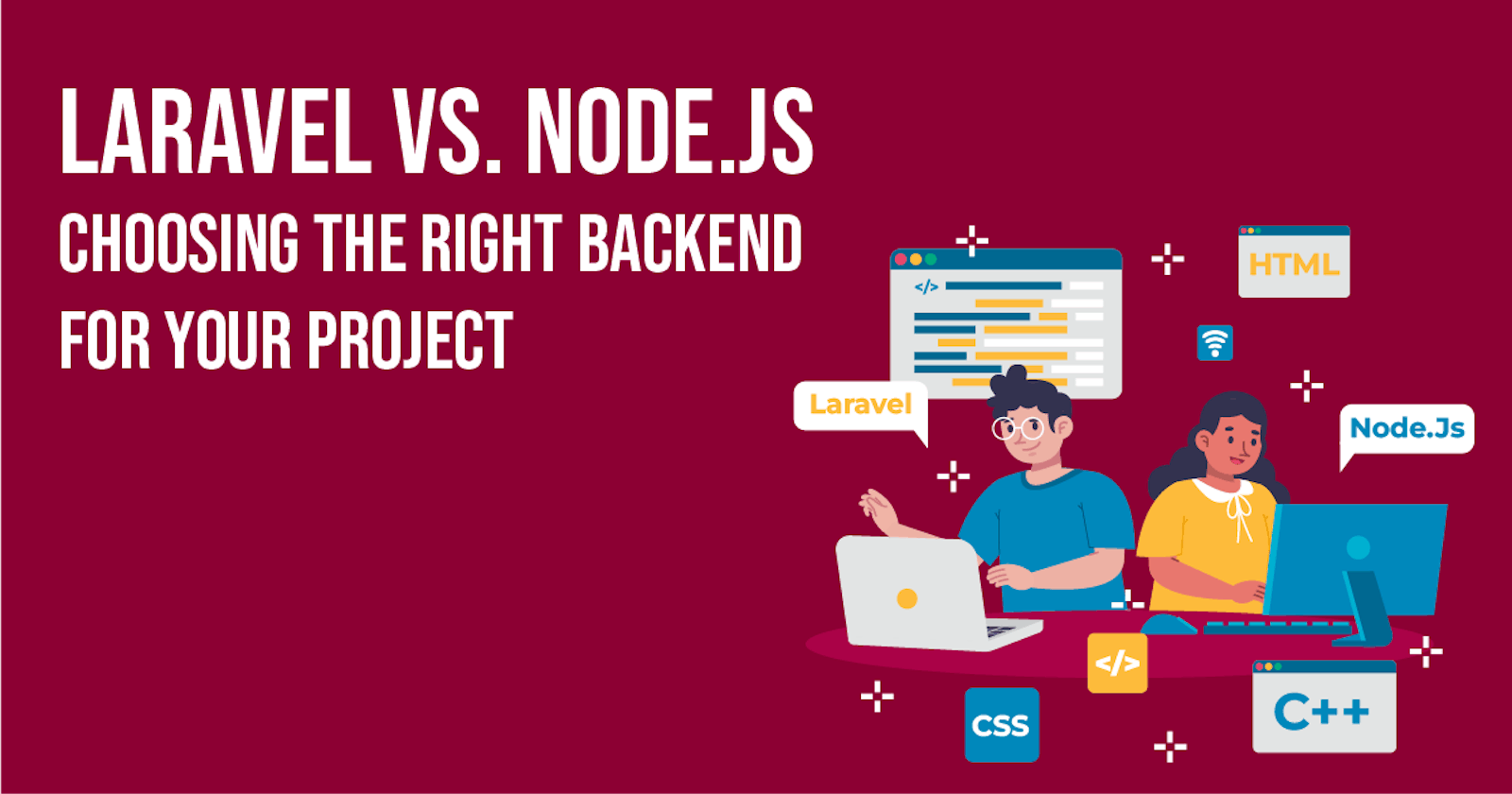Laravel vs. NodeJS: Choosing the Right Backend for Your Project
Introduction
If you're looking for a backend framework, there are two popular options: Laravel and NodeJS. Both are powerful frameworks with a variety of features, but which is better for your project? In this article, we'll compare the two and explore their strengths and weaknesses so that you can decide which one is right for you. The best way to choose between Laravel and Node is by understanding their differences. Let's start with the basics:
Laravel
Laravel is a free, open-source PHP web framework, created and maintained by Taylor Otwell and a community of contributors. It is used to build applications that run on the server side (like WordPress) or in the browser (like Laravel's own front end).
Laravel has been around since 2011 but it's only recently gained popularity with developers because it offers all the benefits of other frameworks like Symfony2 or Zend Framework without forcing you into any specific coding style or workflow.
NodeJS
NodeJS is a runtime environment for server-side applications. It's used to build scalable network applications, real-time web applications, and more. NodeJS is built on Chrome's V8 JavaScript engine and its architecture allows for high-performance, event-driven applications. It was originally developed by Ryan Dahl in 2009.
NodeJS was originally designed by Ryan Dahl in 2009 as an alternative to the then-popular Ruby on Rails framework for developing web applications in JavaScript. Today, Node runs on V8 (Google Chrome's JavaScript engine) with its API that lets you write code in C++ and run it directly on your computer's CPU instead of running it through an interpreter like V8 does behind the scenes in Chrome or Safari browsers do when they execute JavaScript code that you input into their address bars or run inside of some other app like Firefox or Microsoft Edge browser windows - this makes Node much faster than traditional interpreters since it doesn't need so much overhead processing power from its host computer's CPU(s).
Which is better?
If you're building a web application, Laravel is a great choice. It has excellent documentation and the community is active on social media, so you'll always be able to find help if you get stuck.
NodeJS is good for building APIs (application programming interfaces), but it's not as beginner-friendly as Laravel and also requires more knowledge of JavaScript than PHP or Ruby.
Comparison chart
Laravel is a PHP framework.
NodeJS is a server-side JavaScript framework.
Laravel is a popular PHP framework used by many companies, including Facebook and Pinterest, to build powerful web applications.
NodeJS has become one of the most popular technologies used by startups and enterprises alike because it allows you to write scalable applications in less time than ever before, making it easy to add real-time features like chat rooms or live feeds to your site without having to do any complex programming yourself!
If you need a solid backend for your project, choose Laravel or NodeJS
Both Laravel and NodeJS offer compelling options for developing web applications, each with its unique set of advantages and drawbacks. Your choice hinges on your specific needs:
If you're seeking a straightforward and user-friendly framework that expedites site development, Laravel emerges as the superior choice.
In contrast, if your project demands robustness, flexibility, and access to a plethora of modules and plugins, then NodeJS stands as the preferred option.
In the end, the final decision rests in your hands. The paramount objective is to ensure that you opt for a backend framework that seamlessly aligns with your project's needs and objectives.
If you require assistance with either Laravel or NodeJS development, consider hiring dedicated professionals:
Hire Laravel Developer: If you opt for Laravel, enlisting the services of a skilled Laravel developer can streamline your development process and ensure the successful execution of your project.
Hire NodeJS Developers: For NodeJS enthusiasts, hiring NodeJS developers can be instrumental in harnessing the full potential of this runtime environment, allowing you to create robust and scalable applications.
Conclusion
In conclusion, the choice of which backend to use depends on your project. If you need something that can be easily customized and configured without having too much knowledge about coding, then go with Laravel. However, if you want something more powerful and flexible with access to many modules and plugins then NodeJS is the best option for you. So, the final decision is yours. The important thing is to make sure that you choose a backend that suits your needs and goals for your project.

